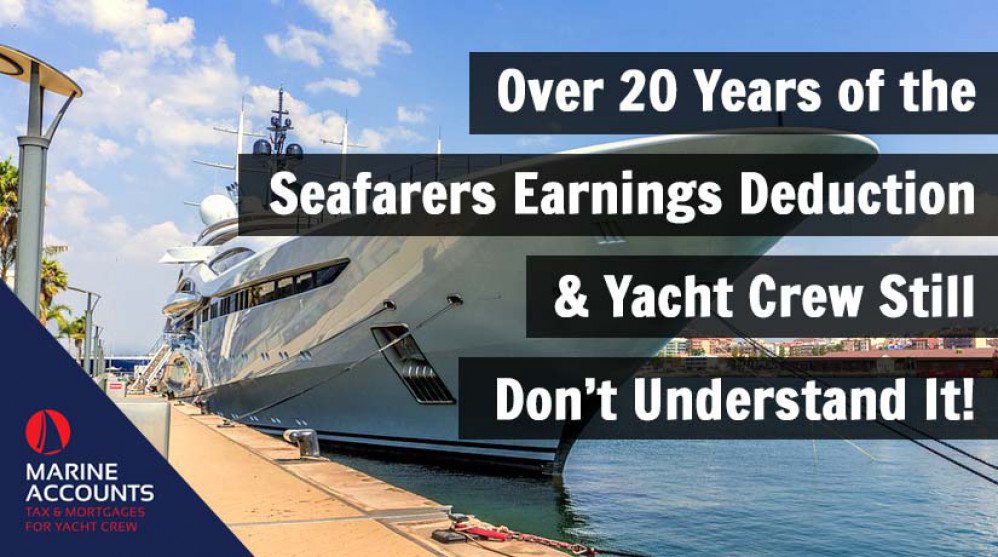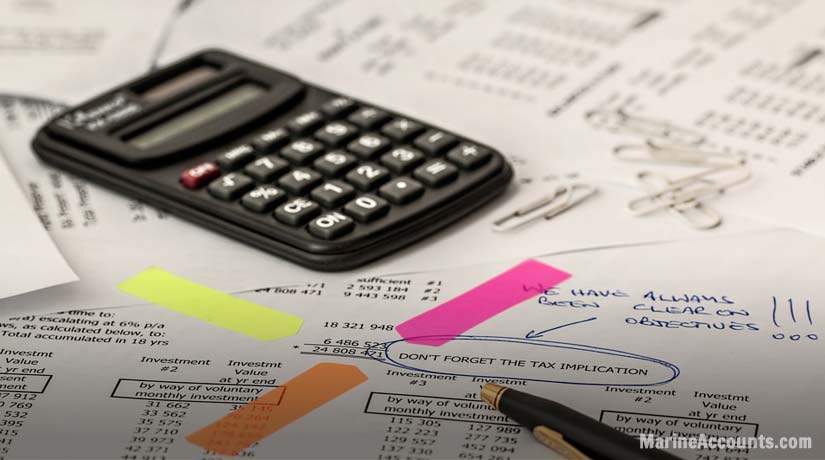Over 20 Years of the Seafarers Earnings Deduction & Yacht Crew Still Don’t Understand It!
- Authors
-
-

- Name
- Patrick Maflin
-

Image source: https://pixabay.com/photos/boat-yacht-cruise-ship-marina-3536611/
(First published 3rd March 2018. Updated 14th March 2019)
For many the idea of not paying tax on their earnings is a pipe dream, yet for UK yacht crew it is a reality that is often overlooked.
The Seafarers Earnings Deduction (SED) is a 100% tax exemption on earnings accrued whilst you are working at sea.
After years of legal wrangling between unions and the UK Government, the SED was created to reflect the consistently shifting job market and to overcome the increasing pressures of globalisation on the seafaring community.
How is it then that many seafarers are still not taking advantage if this invaluable tax legislation?
Continue reading to find out more or use the links below to jump to the relevant chapter:
- Lack of Understanding
- Who Can Claim Under SED?
- Automatic Exchange of Information
- Conclusion
- Speak to Us or Comment!
Lack of Understanding
The simple and honest answer is that many don’t understand how to claim, added to the fact that HMRC haven’t made the process particularly simple to understand either.
For fear of completing their returns wrong, many choose to self cert instead which in most cases is a mistake.
The confusion begins when defining who can and cannot claim.
Learn More About the Seafarers Earnings Deduction
Who Can Claim Under SED?
In order to claim tax exemption under the Seafarers Earnings Deduction, you must be working on a ship and that ship must have docked in a foreign port. So you can’t just embark and disembark in the UK as you please.
A further consideration is the length of time that you have spent outside of the United Kingdom.
You may only spend a maximum of 183 days in the UK per tax year.
This must be evidenced with travel documents, visas, passports and seaman’s discharge books.
To avoid the panic, and potential avoidance of claiming the SED, caused by lost documentation, it is always advisable to keep a folder on cloud based storage full of any evidence that you might require.
Additionally, it makes it easier to share information with any accountancy firms that you may use.
It is also worth noting that 100% tax exemption relates to all earnings that you accrue whilst at sea, meaning that you can use it against earnings from other investments, barring rent.
With the latest changes introduced in 2018 enabling increased taxation from dividend earnings, this can provide a welcome respite from unexpected bills from HMRC and provides you with more capital to invest.
Unlike other systems and deductions, you are not required to pay any tax in advance and there is nothing to claim back.
You simply do not pay tax in the first place.

Image source: https://pixabay.com/photos/calculator-calculation-insurance-1044172/
Automatic Exchange of Information
Additionally, with a new global standard on Automatic Exchange of Information (AEOI) aimed at reducing tax evasion, it is vital that your earnings and taxes are registered correctly.
The ability and speed at which banks in over 100 countries can automatically report financial information with local tax authorities, means that now more than ever, getting your tax liabilities right is essential.
All banks are also now required to have the tax residency information of all their account holders on record, a level of information that can only become more intensively scrutinised in coming years.
And, if you are looking to invest your hard-earned funds, it is worth considering that most mortgage lenders now require proof of earnings in the form of completed tax returns.
If you are completing your returns wrong or are failing to claim an exemption that you are due, this could cause problems in the long run and may make lenders question whether they can lend to you or not.
Conclusion
So in a nutshell, you certainly have more to lose than to gain from not claiming the Seafarers Earnings Deduction.
Aside from the obvious tax that you could be paying, instead of claiming a 100% exemption, there are also the potential problems related to savings, and borrowing money, and the worry that HMRC may be more likely to question why you haven’t claimed an exemption that you are entitled to.
With any tax related questions and concerns it is always advisable to speak to a professional for advice and we are always happy to speak to new clients about their tax compliance.
If you're ready to file a tax return under the SED, click here to get started by using our simple online tax filing service.
Speak to Us or Comment!
If you're concerned about your tax affairs and whether you are eligible to file under the seafarers earnings deduction, our team can review your situation and offer professional advice on your current tax position.
Get in touch with us today or alternatively, let us know what you think in the comments section below.
Click for Tax Return Advice for Seafarers & Yacht Crew
Liked this article? Try reading: Yacht Crew Tax & Financial Information - Your Ultimate Guide
Any advice in this publication is not intended or written by Marine Accounts to be used by a client or entity for the purpose of (i) avoiding penalties that may be imposed on any taxpayer or (ii) promoting, marketing or recommending to another party matters herein.


